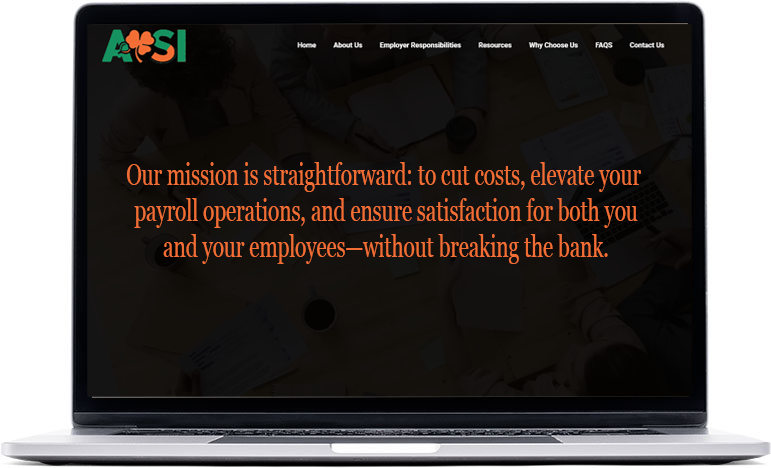Streamlined payroll solutions tailored to your needs.
With our super software, you can enjoy a seamless, secure, and precise payroll process. Effortless input options—import-ready and user-friendly—combined with advanced output features like robust GL interface uploads and customizable reporting keep you in the driver’s seat.
Enhance the employee experience with cutting-edge post-payroll tools, including iPayslips and dedicated support platforms. Leveraging the latest in data security, we ensure that every payday brings peace of mind for you and your team.


20+
years in business

200+
multinational clients

€20
million in payments annually

50k
payslips issued annually

750+
happy paydays every year
Why Businesses Partner with APSI
Compliance and Expertise: We are an Irish company based in Dublin and deeply understand local tax laws, labour regulations, and compliance requirements.
- Data Security: We use robust security measures to protect sensitive employee and company information.
- Scalability: We adapt to your business’s growth and handle payroll for both local and international employees if needed.
- Technology and Features: We use the latest technology with automated systems, reporting capabilities, and integration with accounting software.
- Cost Transparency: No hidden fees, low-cost, affordable, and robust.
- Customer Support: We’re dependable and always ready to support you with reliability and responsiveness you can count on.
- Reputation and Reviews: Our track record speaks volumes,
FAQ
What is payroll, and how does it work?
Payroll in Ireland involves managing employee compensation while adhering to local tax laws and regulations. Here's how it works:
- Employer Registration: Businesses must register as employers with Revenue Online Service (ROS) to process payroll legally
- Tax Deductions: Employers deduct Income Tax (PAYE), Pay Related Social Insurance (PRSI), and Universal Social Charge (USC) from employees' wages. These deductions are calculated based on income levels and government-set thresholds.
- Employer Contributions: Employers also contribute to PRSI, which funds social welfare benefits.
- Payslips and Record-Keeping: Employers must issue payslips to employees and maintain payroll records for at least six years.
- Compliance: Payroll must comply with Irish labor laws, including minimum wage and overtime regulations.
- Submission to Revenue: Employers report payroll details to Revenue and pay the due taxes monthly.
What taxes and deductions are taken out of an employee's paycheck?
- PAYE (Pay As You Earn): This is income tax deducted at source based on the employee's earnings and tax credits.
- PRSI (Pay Related Social Insurance): Contributions fund social welfare benefits and are deducted from both employees and employers.
- USC (Universal Social Charge): A tax applied to income above certain thresholds, with rates varying depending on income levels.
- Pension Contributions: If applicable, employees may contribute to a pension scheme, either mandatory or voluntary.
- Additional Deductions: These can include health insurance, union fees, or other voluntary contributions agreed upon by the employee.
Employers are responsible for calculating and deducting these amounts before issuing net pay to employees.
How do I choose the right payroll software or provider?
Choosing the right payroll software or provider in Ireland involves careful consideration of your business needs and the features offered. Here are some key factors to guide your decision:
- Compliance with Irish Regulations: Ensure the software or provider is well-versed in Irish tax laws, including PAYE, PRSI, and USC requirements.
- Ease of Use: Look for user-friendly interfaces and intuitive features that simplify payroll management.
- Scalability: Choose a solution that can grow with your business, accommodating more employees or complex payroll needs.
- Integration Capabilities: Opt for software that integrates seamlessly with accounting systems, HR platforms, and other tools.
- Data Security: Verify that the provider prioritizes robust security measures to protect sensitive employee and company information.
- Customer Support: Reliable and responsive support is crucial for resolving issues quickly.
- Cost Transparency: Understand the pricing structure and ensure there are no hidden fees.
- Reputation and Reviews: Research the provider's track record and client testimonials to gauge their reliability.
How do I handle payroll for remote or international employees?
Handling payroll for remote or international employees in Ireland involves several key steps:
- Employer Registration: Register as an employer with Revenue Online Service (ROS) to ensure compliance with Irish tax laws.
- Determine Employment Status: Classify workers correctly as employees or contractors to avoid legal issues.
- Tax Compliance: Deduct PAYE, PRSI, and USC from employees' wages, as required by Irish regulations.
- Currency Considerations: Decide whether to pay employees in Euros or their local currency, depending on agreements and convenience.
- Payroll Software: Use global payroll software that supports multi-currency payments and compliance with Irish laws.
- Benefits and Entitlements: Ensure remote employees receive statutory benefits like sick leave, parental leave, and pensions.
- Social Security Coordination: For international employees, check if they qualify for an A1 certificate to remain in their home country's social security system.
How can I ensure data security in payroll processing?
Ensuring data security in payroll processing in Ireland is crucial to protect sensitive employee and company information. Here are some best practices:
- Compliance with GDPR: Adhere to the General Data Protection Regulation (GDPR) to safeguard personal data and avoid legal penalties.
- Secure Payroll Software: Use payroll systems with robust encryption and multi-factor authentication to prevent unauthorized access.
- Regular Updates: Keep payroll software and systems updated to patch vulnerabilities and enhance security.
- Employee Training: Educate staff on data protection policies and how to recognize phishing attempts or other cyber threats.
- Access Control: Limit access to payroll data to authorized personnel only and regularly review permissions.
- Audit and Monitoring: Conduct regular audits to identify potential risks and ensure compliance with security protocols.
How often should payroll be processed?
In Ireland, payroll processing frequency is flexible and depends on the agreement between employers and employees. Common options include:
- Weekly: Often preferred in industries like hospitality and retail.
- Fortnightly: A middle ground for some businesses.
- Monthly: Popular among sectors like technology and pharmaceuticals.
What are the differences between gross pay and net pay?
Gross Pay: This is the total amount an employee earns before any deductions. It includes basic salary, bonuses, overtime, and other earnings.
Net Pay: This is the take-home amount after all deductions are subtracted from the gross pay. Deductions typically include:
- PAYE (Pay As You Earn): Income tax deducted at source.
- PRSI (Pay Related Social Insurance): Contributions towards social welfare benefits.
- USC (Universal Social Charge): A tax applied to income above certain thresholds.
- Pension contributions or other voluntary deductions, if applicable.
What is the best way to ensure compliance with tax laws and regulations?
Stay Updated on Tax Laws: Tax regulations in Ireland can change frequently. Regularly review updates from Revenue (Irish Tax and Customs) to stay informed.
Use Reliable Payroll Software: Invest in software that automates tax calculations, deductions, and reporting to minimize errors.
Engage a Tax Professional: Work with a qualified accountant or tax advisor who understands Irish tax laws and can provide expert guidance.
Maintain Accurate Records: Keep detailed and organized records of all financial transactions, payroll, and tax filings for at least six years, as required by law.
File Returns on Time: Ensure all tax returns, such as VAT, PAYE, and Corporation Tax, are submitted by their respective deadlines to avoid penalties.
Conduct Regular Audits: Periodically review your financial and tax records to identify and address any discrepancies.
Employee Training: Educate your team on compliance requirements, especially if they handle payroll or financial tasks.
Leverage Revenue Online Service (ROS): Use ROS for efficient tax management, including filing returns, making payments, and accessing tax records.
What are the benefits of outsourcing payroll?
Time Savings: Delegating payroll tasks frees up valuable time for your team to focus on core business activities.
Cost Efficiency: Reduces the need for in-house payroll staff, software, and training, leading to significant cost savings.
Compliance Assurance: Professional providers stay updated on Irish tax laws and regulations, ensuring accurate and compliant payroll processing.
Data Security: Reputable providers implement robust security measures to protect sensitive employee and company information.
Scalability: Outsourced payroll services can easily adapt to your business's growth and changing needs.
Reduced Risk of Errors: Experts handle calculations and deductions, minimizing the risk of costly mistakes.
Enhanced Employee Satisfaction: Timely and accurate payroll processing contributes to a positive employee experience.
What are the benefits of outsourcing payroll?
Time Savings: Delegating payroll tasks frees up valuable time for your team to focus on core business activities.
Cost Efficiency: Reduces the need for in-house payroll staff, software, and training, leading to significant cost savings.
Compliance Assurance: Professional providers stay updated on Irish tax laws and regulations, ensuring accurate and compliant payroll processing.
Data Security: Reputable providers implement robust security measures to protect sensitive employee and company information.
Scalability: Outsourced payroll services can easily adapt to your business's growth and changing needs.
Reduced Risk of Errors: Experts handle calculations and deductions, minimizing the risk of costly mistakes.
Enhanced Employee Satisfaction: Timely and accurate payroll processing contributes to a positive employee experience.
What is the process for correcting payroll errors?
Identify the Error: Review the payroll records to pinpoint the mistake, such as overpayment, underpayment, or incorrect tax deductions.
Amend the Submission: Use your payroll software or the Revenue Online Service (ROS) to correct the error. For example:
- Overpayments can be adjusted by reducing the employee's gross pay in the next payroll cycle.
- Underpayments can be corrected by increasing the employee's gross pay in the subsequent payroll.
Submit Corrected Details: Ensure the corrected payroll submission is sent to Revenue before the return due date to avoid penalties.
Keep Records: Maintain documentation of the error and the correction for compliance and future reference.
Communicate with Employees: Inform affected employees about the error and the steps taken to resolve it.
Payroll Services in Ireland
Payroll services in Ireland offer numerous advantages for businesses, including:
Compliance
of penalties.
Accuracy
Time Efficiency
Data Security
Expertise You Can Cost Savings
software.
Scalability















